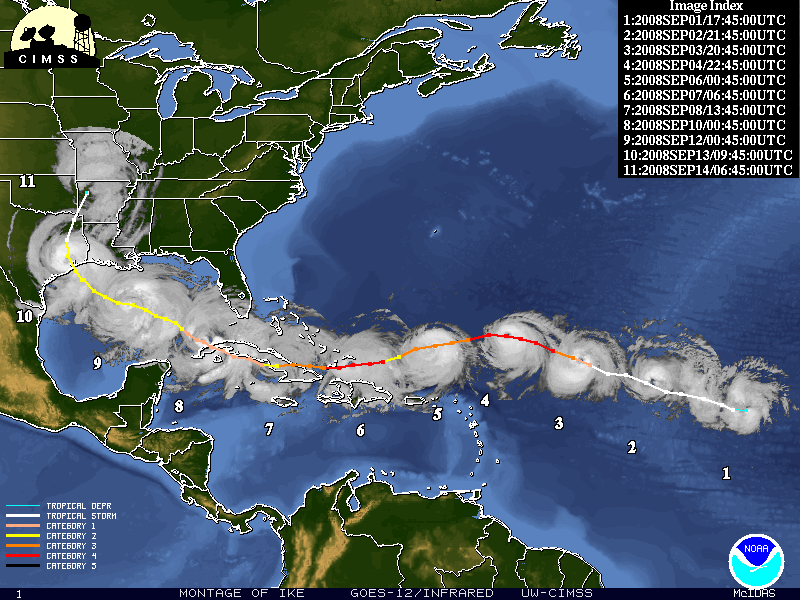
HYDRO-METEOROLOGICAL HAZARD
(TECHNICAL TERMS)

AIR MASS
A widespread body of air, the properties of which can be identified as
(a) having been established while that air was situated over a particular region, and
(b) undergoing specific modifications while in transit away from the source region.

CYCLONE
An area within which the pressure is low relative to the surroundings. An atmospheric “closed circulation” with the winds blowing counter clockwise around cyclones in the Northern Hemisphere. The winds cross the isobars at an angle (15 degrees over water and 30 degrees over land), and blow from higher toward lower pressure.

ANTICYCLONE
An area where the atmospheric pressure is high relative to the surroundings. The wind circulation is clockwise around an anticyclone in the Northern Hemisphere, with the wind crossing the isobars at an angle and blowing from higher toward lower pressure.

BEST TRACK
A subjectively smoothed path, versus a precised and very erratic fix- to- fix path, used to represent tropical cyclone movement, and based on an assessment of all available data.

DIVERGENCE
The expansion, or spreading out, of a vector field. In meteorology, the term is used in a broad sense to include the “spreading apart”, or drawing apart of winds (air particles) either their horizontally or vertically.

FRONT
The interface, or transition zone, between two air masses of different density. Since the temperature distribution is the most important “regulator” of atmospheric density, a front usualy separated air masses of different temperature. Fronts are drawn as “lines” separating different air masses on weather maps.

RECURVATURE
The turning of tropical cyclone from an initial path toward the west and poleward ton east and poleward, after moving poleward of the mid-tropospheric subtropical ridge axis.

ITCZ
(Inter-tropical Convergence Zone)
An almost- continuous trough or belt of low pressure around the globe in the equatorial regions. It is where the NE trade winds (of the Northern Hemisphere) and the SE trades (of the Southern Hemisphere) converge, or come together.